News from 2022-10-14 / KfW Development Bank
Development Finance Forum 2022
"The entire Earth system is in danger of destabilising" - Professor Johan Rockström at KfW’s Development Finance Forum
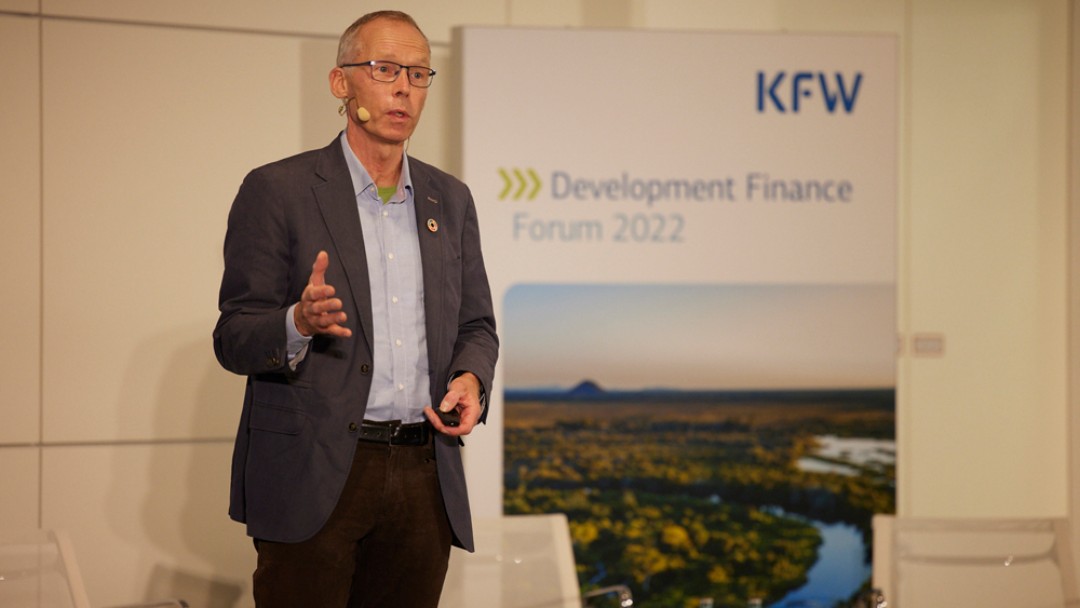
Nature provides a stress buffer for the Earth. But if nature itself is under pressure, it can no longer fulfil this function adequately. As a result, the entire Earth system is in danger. This is exactly where we are now, said Johan Rockström, Swedish-German scientist and Director of the Potsdam Institute for Climate Impact Research, in Frankfurt.
Rockström delivered the key note at this year's Development Finance Forum of KfW Development Bank, which was entitled: "Two crises, one solution - how development finance can address climate change and biodiversity loss." For two days, more than 200 experts from around the world discussed how best to tackle this dual crisis and what contribution development cooperation could make.
In his presentation, which was as clear as it was appealing, Rockström pointed out that we currently have to deal with four overlapping crises: Corona pandemic, Ukraine war, climate change and pressure on the environment. By now, we have reached or exceeded six out of nine so-called stress limits of the earth. These include biochemical cycles as well as the water cycle, the biosphere and the acidity of the oceans. It is to be feared that the various factors will reinforce each other to such an extent that in the not very distant future we will reach tipping points at which the entire Earth system could get out of control and life in the form to which we have been accustomed will no longer be possible.
Considering nature as an ally
This makes it all the more important to keep nature as intact as possible. "We must regard nature as an ally," says Rockström, "because only with it do we have a chance" of overcoming the current crises and, for example, limiting climate change to 1.5 degrees. Therefore, it is of utmost importance to become "nature-positive" as soon as possible and to manage and live in a nature-friendly way.
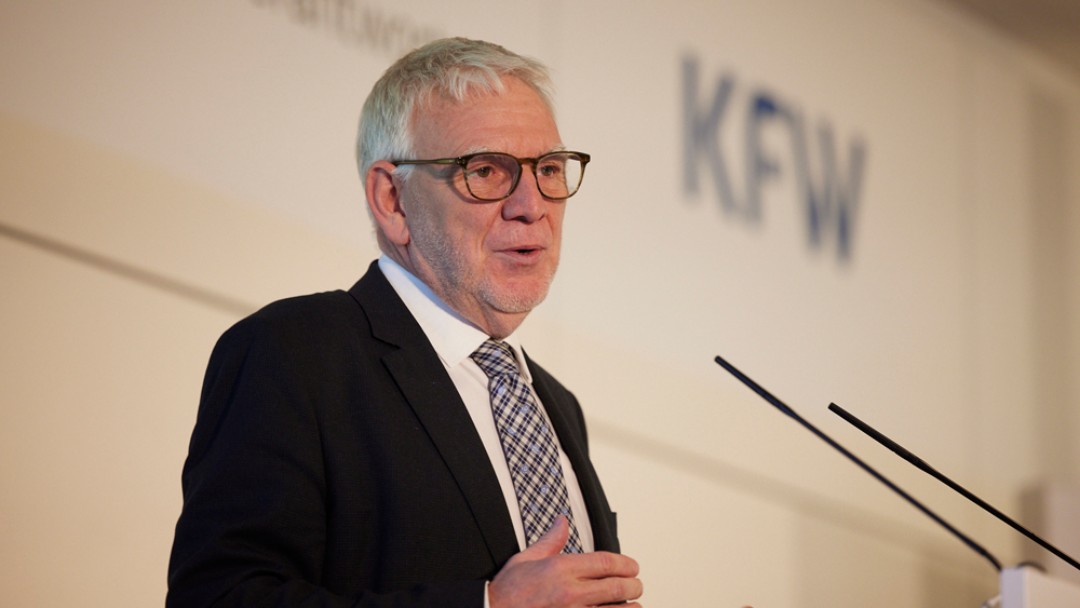
In his speech, BMZ State Secretary Jochen Flasbarth also pointed out that humanity is at a very critical point. He looked at climate and biodiversity from a political perspective, not least in view of the two upcoming major international conferences on climate in November and biodiversity in December. Fortunately, such meetings are now taking place again after the Corona break, he said, they are important to create a spirit of optimism and momentum. On both issues, he said, in addition to clear goals, the focus is now very much on raising the money for the necessary transformation. "We need more intelligent solutions on how to involve the private sector here and how to create markets for climate protection and biodiversity conservation," Flasbarth said. Public budgets are under great pressure; they cannot raise the funds on their own.
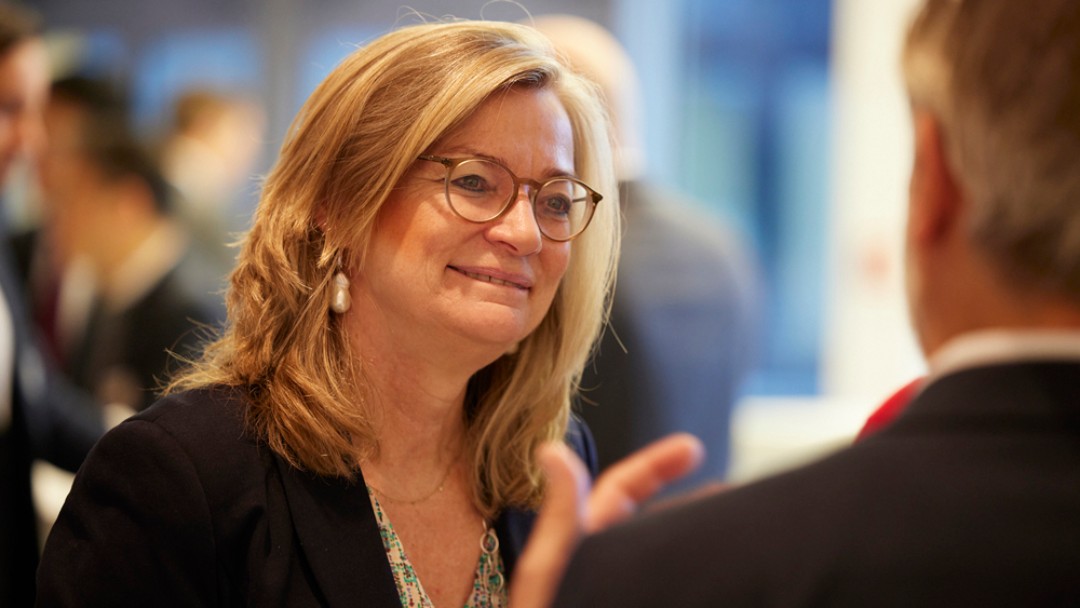
KfW Board Member Christiane Laibach also pointed out that climate and biodiversity should no longer be viewed and treated in isolation. Unlike climate change, the loss of nature is not yet very high on the international agenda and is not yet anchored in the financial sector. There is a lot of catching up to do here. "The longer we wait, the more expensive it will be," she said.
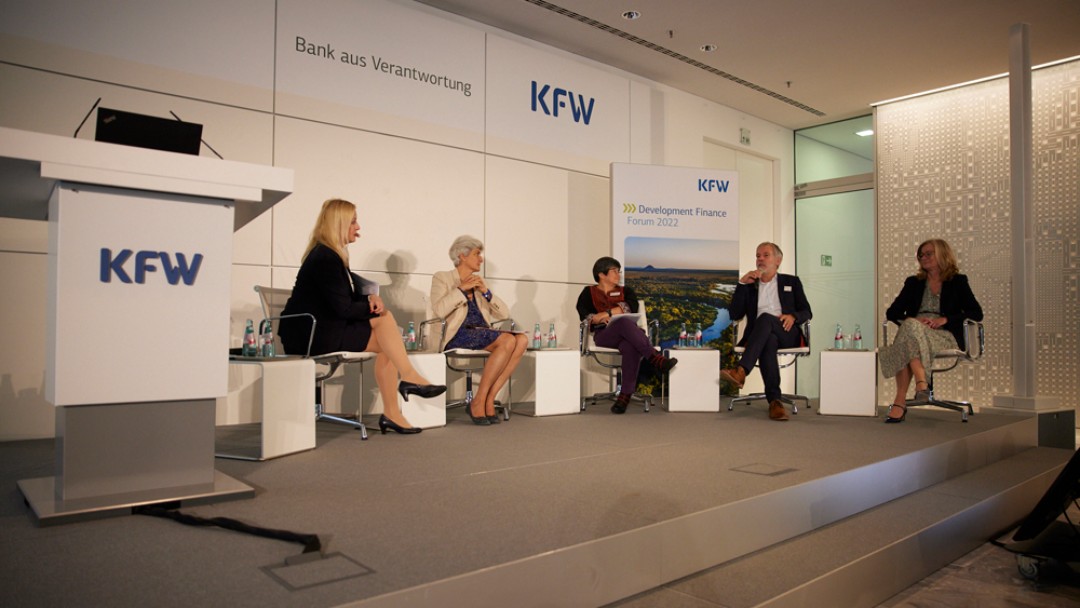
Act now!
Among the approximately 240 international guests from politics, the banking world, academia and NGOs were, for example, the deputy central bank president of France, Sylvie Goulard, the director of "Indigenous Peoples Rights International", Joan Carling, as well as the winner of this year's German Environmental Award, the director of the Frankfurt Zoological Society, Christoph Schenck. Even though the guests held different opinions in detail, they essentially agreed on some points:
- Climate change cannot be controlled without nature conservation.
- The fact that the two issues are indissolubly linked has not yet penetrated the general consciousness.
- Biodiversity, unlike climate, does not yet have a label, a measure. It needs to be developed. Because this crisis is at least as serious as climate change.
- Significantly more funds are needed for climate and biodiversity; for this, the participation of the private sector through innovative financial instruments is indispensable.
- Nature conservation and climate protection must be reflected in the market, external costs must be priced in. This requires concepts and systems.
- The mainstreaming of biodiversity in particular must be advanced quickly.
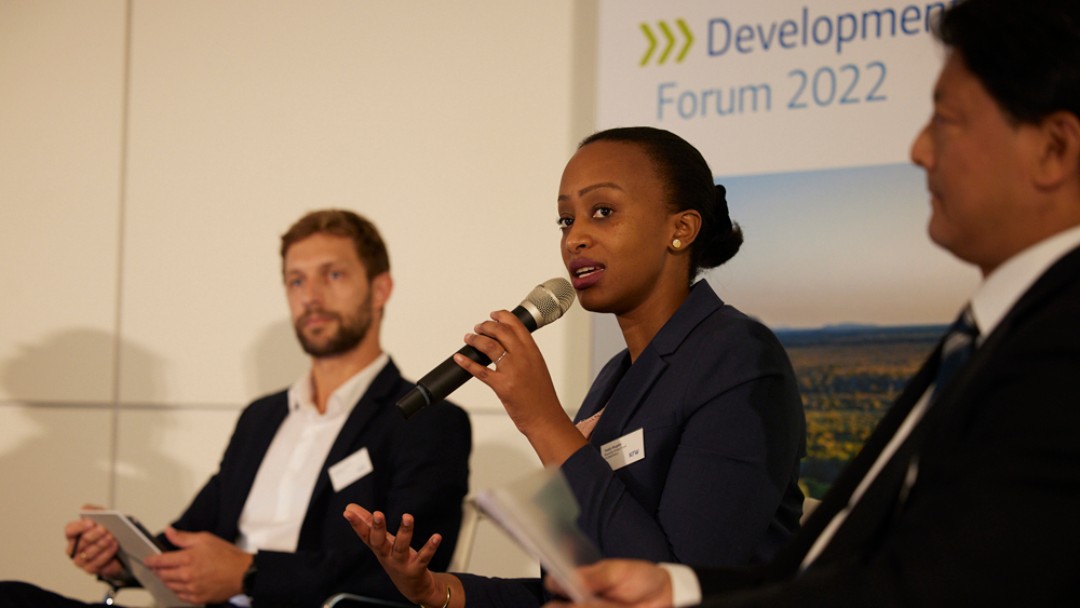
There was also unanimity in the assessment that the situation was serious, that time was pressing and that the phase of declarations of intent was over. It has taken almost three decades to make substantial progress on climate change, according to several speakers. This is not enough time to formulate clear goals and concrete measures for the protection of biodiversity and to get them off the ground. "Therefore, my most important message," said Sylvie Goulard, representing various speakers, "is that we must act - now."

Share page
To share the content of this page with your network, click on one of the icons below.
Note on data protection: When you share content, your personal data is transferred to the selected network.
Data protection
Alternatively, you can also copy the short link: https://www.kfw-entwicklungsbank.de/s/enzBWrMC.CyXA
Copy link Link copied